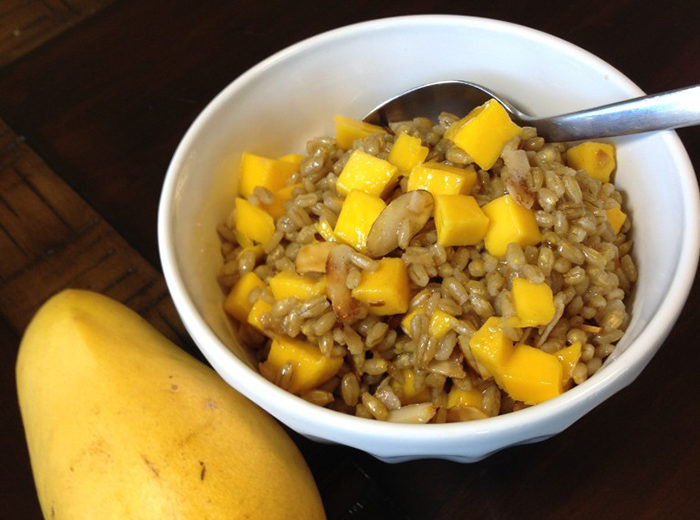
A student in my Basic Nutrition class recently noted that what he’d learned after 10 weeks of immersion into complex carbohydrates, fatty acids, energy balance, label reading, hypertension, minerals, metabolism and the like was that healthy eating was a full time job. Thinking about food is so deeply woven into my daily routine that it made me wonder: How much time do I really spend each week to feed myself with health in mind? So, I decided to keep track. I logged minute-by-minute any effort I put into getting food or preparing food for three meals plus snacks every day for a week.
The results? I averaged one hour a day, or 65 minutes to be exact, though this ranged from a low of 49 minutes one day to a high of 108 minutes on another. It was a slightly unusual week because it included three meals out, but was much like the norm in that I relied heavily on leftovers to get multiple meals out of one burst of cooking effort.
I spent 10 minutes meal planning and two hours procuring and putting away food for the week. There were two trips to the grocery store, one stop at a fruit stand, and a trip to the drop site to pick up our box of CSA vegetables. We have a pretty standard meal routine: cereal or smoothies for breakfast, leftovers from the night before for lunch, and working together to prepare a homemade dinner.
This was a highly unscientific effort, and of course, there are some caveats:
- Cooking at home makes dirty dishes; much more so than grabbing fast food or dining out. But, I didn’t include dish duty in the tally.
- Food knowledge is power. As a dietitian, I suppose I know more than most folks about what makes a good choice and what might fly in the face of common sense. (However, I’m a one-trick pony. The vast greatness of what I don’t know is staggering. Just pick a topic. Any topic. I’m clueless.) So, it might be realistic to factor in some time for reading, taking classes, using smart phone apps — all tools that help build a base of nutrition know-how.
- It takes time to eat. I factored in only prep time and shopping time, not the minutes it takes to actually consume the food. That’s the fun part and I figured most everyone devotes time to chewing and swallowing. Also, it doesn’t usually take any longer to eat healthy food than the alternative.
- We are only a family of two. Larger families just take more time to feed. There are more bags of groceries to unload and larger quantities of food to prepare. So, your count might be higher for each additional person in your family.
- Exercise takes time, too. You could, and should, argue that exercise is a key piece of the living healthy puzzle. If you add time spent on this, the tally goes up considerably. Right now, my routine includes about 45 minutes of walking 6 days a week, or another 4.5 hours per week.
Overall, it looks like it’s seven hours a week devoted to a healthy diet — and a grand total of 11.5 if you factor in physical activity. Not quite a full time job, but definitely a time commitment. I’d argue that it’s worth it and then some considering the return on investment.






